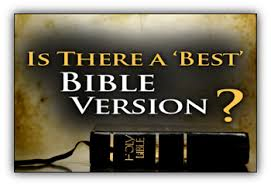SHEPHERD
TO SHEEP
UNIVERSAL
SALVATION (WILL EVERYONE BE SAVED?)
(1 Tim 4:10) … we trust in the living God,
who is the Savior of all men, especially of those who believe.
So…are you
ready for the loaded question? Will
everyone be saved? Or will only those
who have accepted Jesus as their personal Savior have salvation?
Here’s what Universalists
believe: Since no human being is totally
bad, no human will perish eternally. It is God’s plan to take what is good in
each individual and multiply it, and replace the bad within us with an infusion
of God’s divine goodness, until only the good remains. Supporting scriptures they use are: Mat. 19:28, John 12:32, Acts 3:21, Rom. 5:18,
1 Cor. 15:22, 28, Col. 1:20, 1 Tim. 2:4-6.
They go on to say: Souls that
leave this life on earth without experiencing salvation will have other
opportunities for conversion, learning and growth after death (1 Pet. 3:18-20,
4:6). No one will ever run out of chances to return home to their Creator. Even
the most evil beings who have ever lived can still be saved — and will be, in
the fullness of time (Phil. 2:10).
That all
sounds nice doesn’t it? Like that
Hallmark movie where all problems are solved and everything ends on a good
note. It’s the feel good theology. I heard it one time in the catacombs under
the city of Rome. A woman from the
Catholic church gave the most “inspiring” message that God loves all and all
will be saved. On the way out one woman
was dabbing her eyes saying it was the most wonderful thing she had ever
heard. I left with fumes coming out my
ears. I pulled my family aside and told
them why I was so upset.
The Bible
says all men are born sinners and deserving of the condemnation of eternal
punishment. (John 3:18) “He who believes in Him is not condemned; but he who does
not believe is condemned already, because he has not believed in the name of
the only begotten Son of God. If a
person dies without Christ’s atonement for their sins they will be lost for all
of eternity. (Heb 9:27) And as it is appointed for men to die once, but after this
the judgment. But the good news is
that Jesus took the wrath of God on the cross for mankind opening the door of
salvation to all: (Rom 5:9) Much more
then, having now been justified by His blood, we shall be saved from wrath
through Him. Now all a person has to
do is personally repent and turn to Christ for salvation: (Acts
3:19) Repent therefore and be converted, that your sins may be blotted out, so
that times of refreshing may come from the presence of the Lord.
So we may
say that Jesus is the Savior of all people potentially. But each individual must receive forgiveness
and trust in the atoning work of Christ on their behalf. If man could be saved on his own they why the
necessity of Christ’s death? (Gal 2:21) I do not set aside the grace of
God; for if righteousness comes through the law, then Christ died in vain.
Louie







